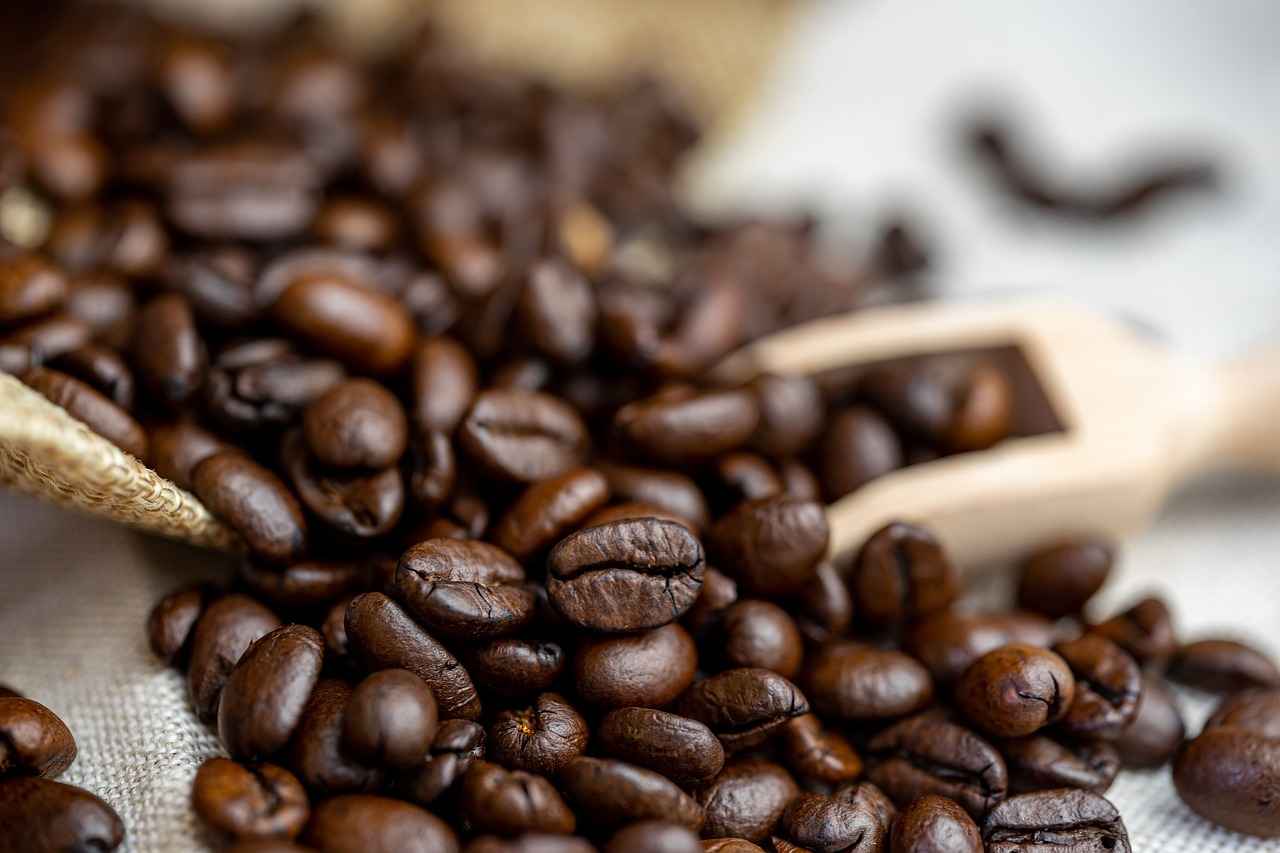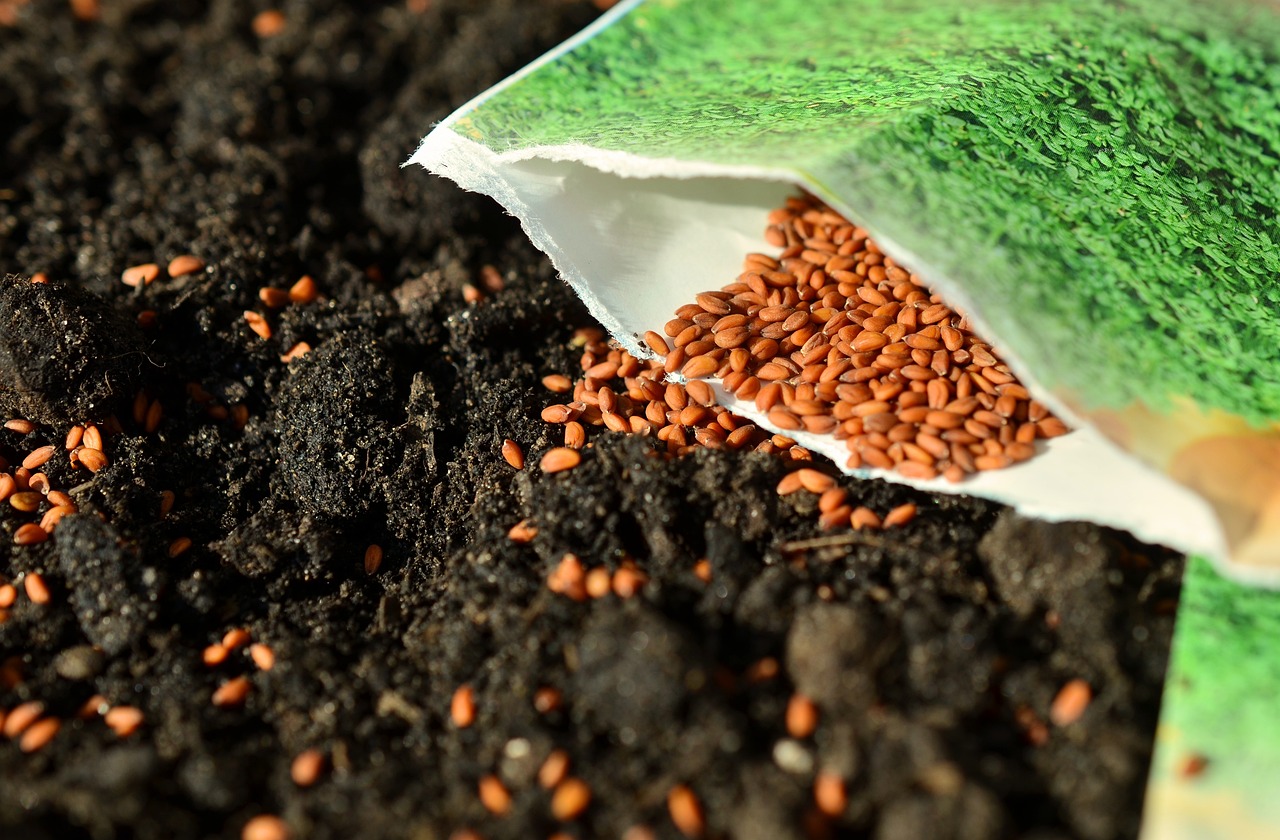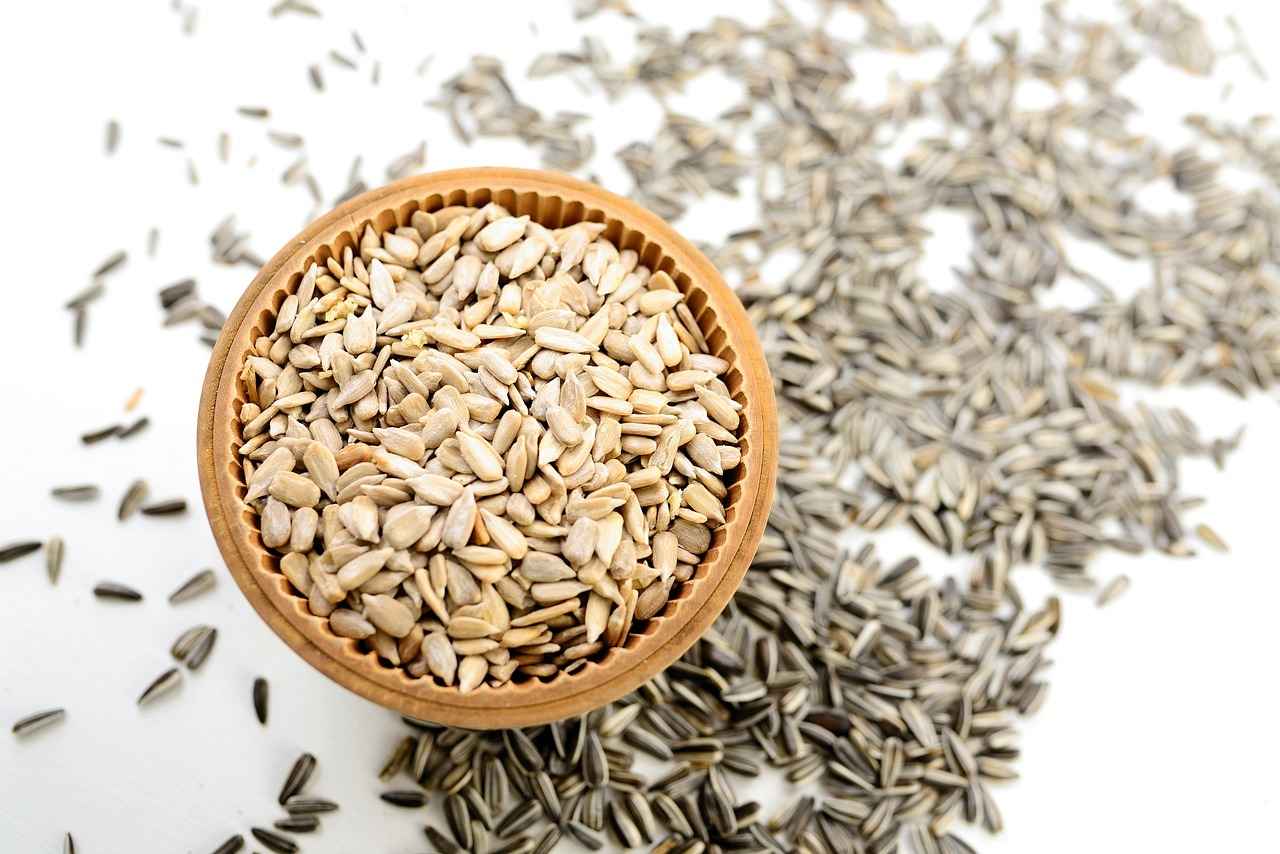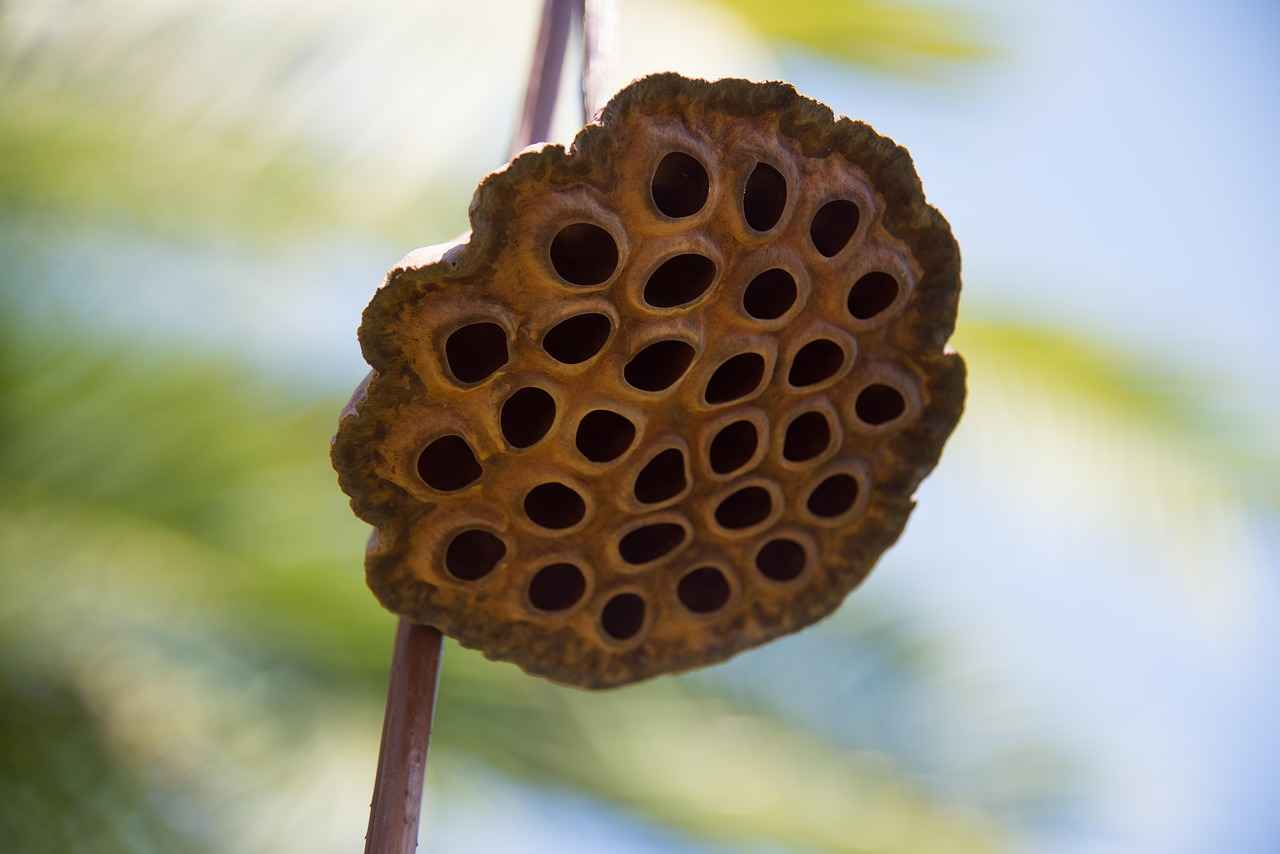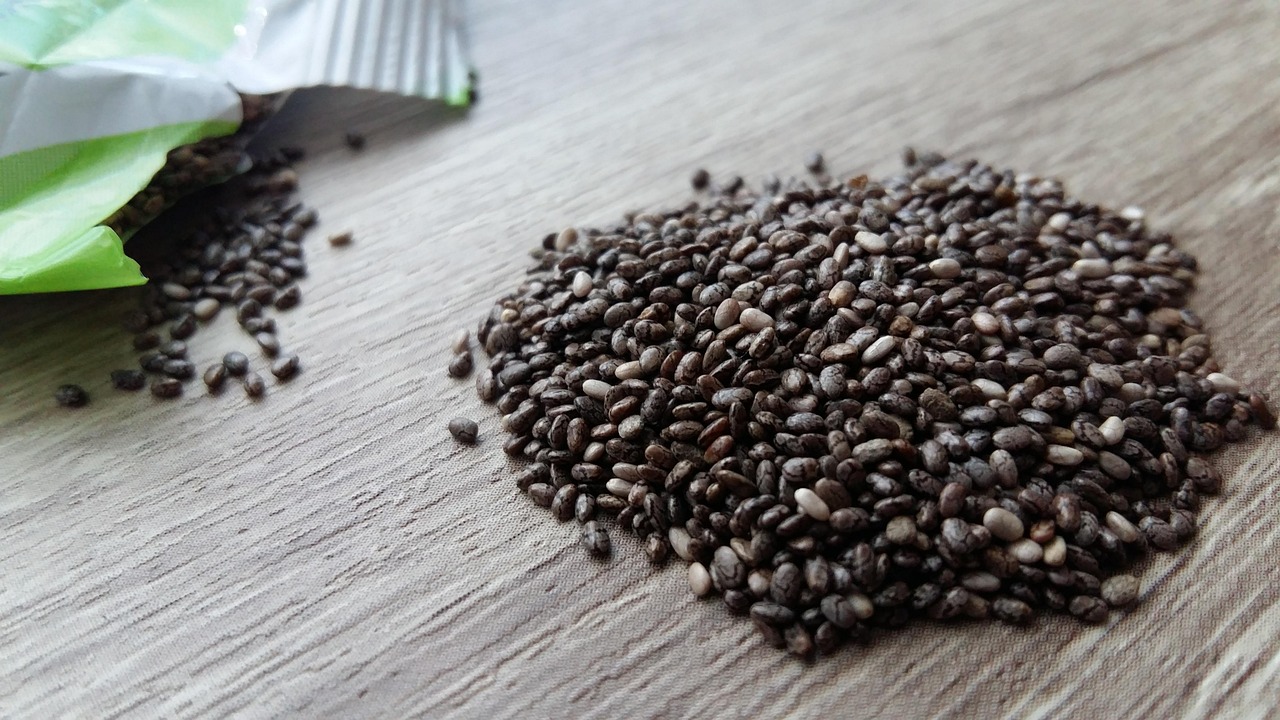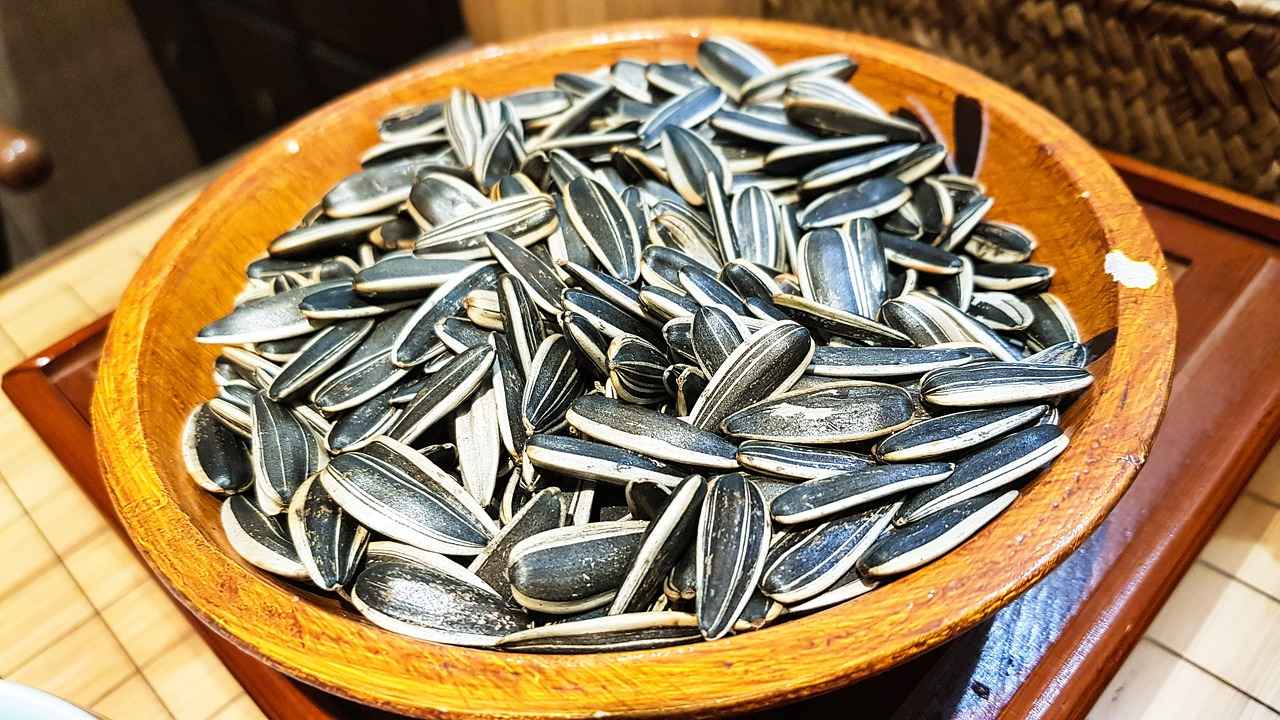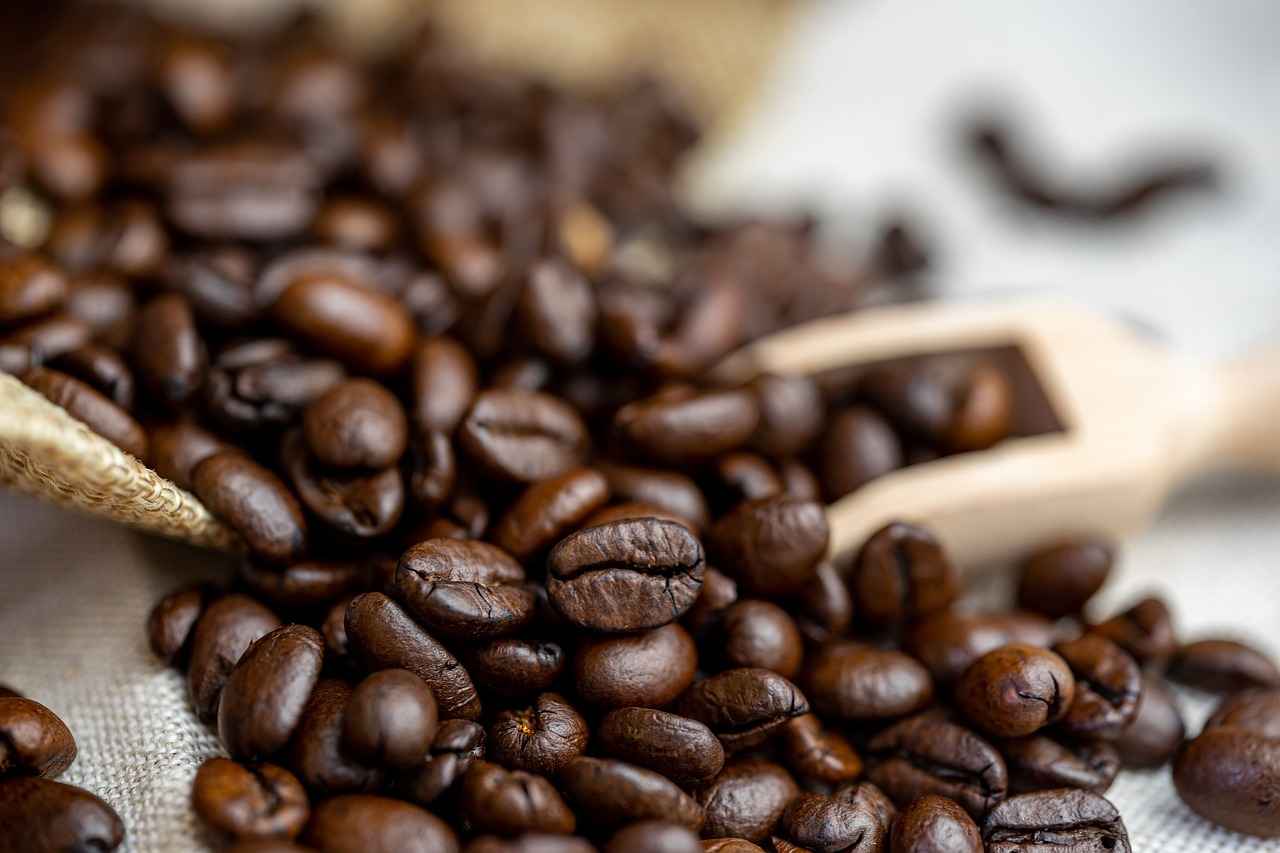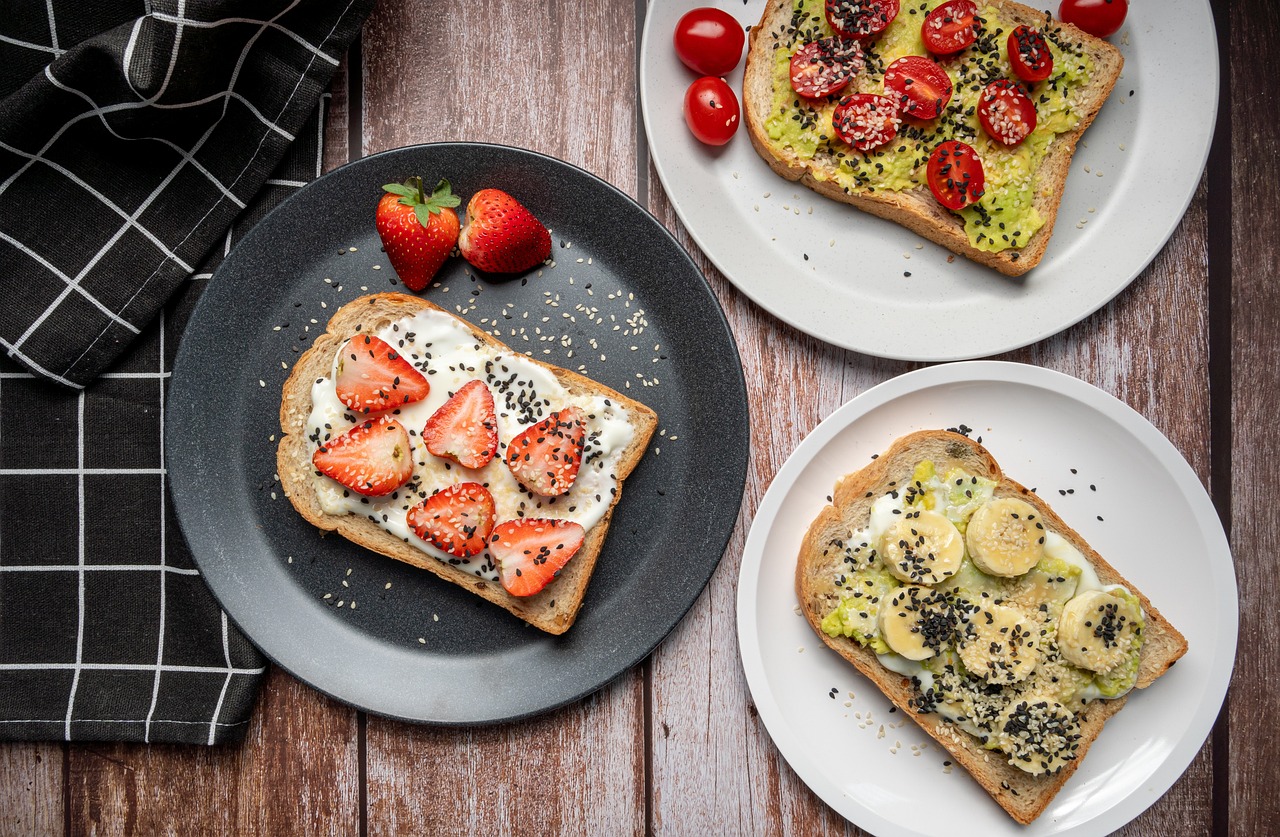Chia seeds have gained immense popularity in recent years, particularly among health enthusiasts and those seeking to enhance their dietary habits. This article provides an in-depth look at the calorie content of chia seeds, their numerous nutritional benefits, and practical ways to incorporate them into a balanced diet.
Chia seeds are small, black or white seeds derived from the Salvia hispanica plant, native to Central America. These tiny seeds are celebrated for their impressive nutrient profile, which includes fiber, protein, omega-3 fatty acids, and various essential minerals.
A typical serving size of chia seeds is approximately 28 grams (or 1 ounce), which contains about 138 calories. Understanding this calorie content is crucial for those looking to manage their dietary intake effectively.
Chia seeds are not only low in calories but also packed with essential nutrients. Here’s a breakdown of their nutritional components:
- High Fiber Content: With around 11 grams of fiber per ounce, chia seeds are an excellent source of dietary fiber that aids digestion and promotes a feeling of fullness.
- Rich in Omega-3 Fatty Acids: Chia seeds are one of the richest plant sources of omega-3 fatty acids, particularly alpha-linolenic acid (ALA), which supports heart health and reduces inflammation.
- Protein: They provide a decent amount of protein, making them an excellent addition to vegetarian and vegan diets.
- Minerals: Chia seeds are rich in calcium, magnesium, and phosphorus, which are vital for bone health.
Incorporating chia seeds into your meals is simple and delicious. Here are some practical tips:
- Chia Seed Pudding: Combine chia seeds with milk or a milk alternative and let them soak overnight to create a creamy pudding.
- Smoothies: Add a tablespoon of chia seeds to your favorite smoothie for an extra nutrient boost without significantly increasing calories.
- Baking: Incorporate chia seeds into baked goods like muffins or bread for added texture and nutrition.
Beyond their calorie count, chia seeds offer a range of health benefits:
- Weight Management: The high fiber content in chia seeds helps regulate appetite, making them a valuable addition for those looking to manage their weight.
- Heart Health: The omega-3 fatty acids in chia seeds contribute to heart health by lowering cholesterol levels and reducing inflammation.
- Improved Digestion: Their fiber content supports digestive health, promoting regularity and preventing constipation.
While chia seeds are generally safe for most people, some potential downsides include:
- Allergic Reactions: Some individuals may experience allergic reactions to chia seeds. It’s important to monitor for any adverse effects.
- Digestive Issues: Due to their high fiber content, consuming excessive amounts can lead to digestive discomfort. Moderation is key.
In summary, chia seeds are a nutrient-dense food that can easily fit into a healthy diet. With their low calorie count and high nutritional value, they are an excellent choice for anyone looking to enhance their dietary habits.
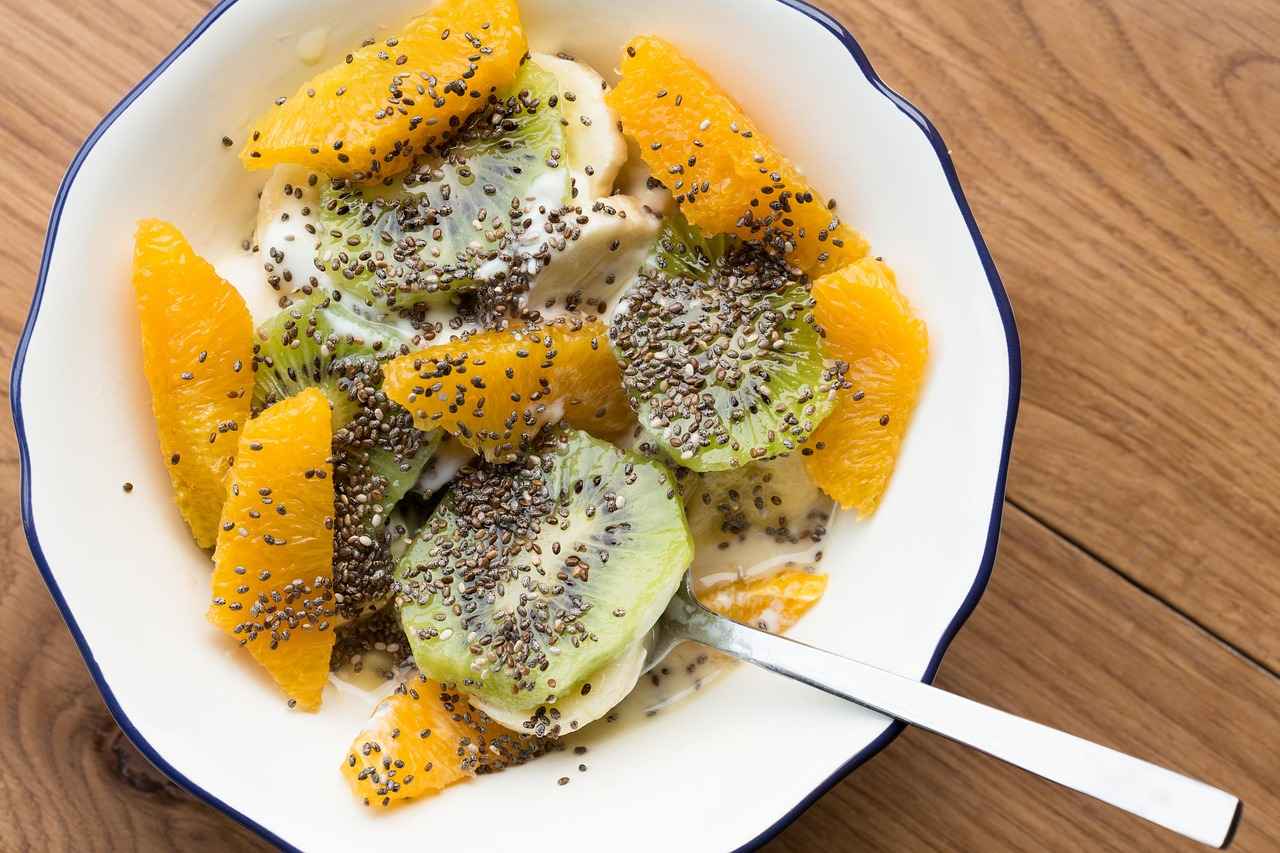
What Are Chia Seeds?
Chia seeds have gained immense popularity in recent years as a superfood, and for good reason. These tiny, nutrient-dense seeds are derived from the Salvia hispanica plant, native to Mexico and Guatemala. Their impressive nutritional profile makes them a staple in many health-conscious diets.
Chia seeds are small, black or white seeds that pack a powerful punch of nutrition. They are rich in fiber, omega-3 fatty acids, and essential minerals, which contribute to their status as a popular health food choice. These seeds can absorb up to 12 times their weight in water, forming a gel-like consistency that helps keep you hydrated and satiated.
Incorporating chia seeds into your diet can lead to numerous health benefits. Here are some key advantages:
- High in Nutrients: Chia seeds are loaded with nutrients, including protein, calcium, magnesium, and antioxidants.
- Supports Digestive Health: The high fiber content aids in digestion, promoting regular bowel movements.
- Boosts Heart Health: Omega-3 fatty acids found in chia seeds are known to reduce inflammation and lower cholesterol levels.
A standard serving of chia seeds, approximately 28 grams or 1 ounce, contains around 138 calories. Understanding the calorie content is crucial for those managing their dietary intake. These seeds provide a nutrient-dense option, meaning you get a lot of nutritional benefits without excessive calories.
Adding chia seeds to your meals is simple and versatile. Here are some practical ways to enjoy them:
- Chia Seed Pudding: Mix chia seeds with milk or a dairy alternative, let it sit overnight, and enjoy a nutritious breakfast.
- Smoothies: Blend chia seeds into your favorite smoothie for an extra nutritional boost.
- Baking: Add chia seeds to muffins, bread, or granola for added texture and nutrition.
While chia seeds are generally safe for most people, it’s important to be aware of potential downsides:
- Allergic Reactions: Some individuals may experience allergies to chia seeds. It’s essential to monitor for any adverse effects.
- Digestive Issues: Due to their high fiber content, excessive consumption can lead to digestive discomfort. Moderation is key.
In summary, chia seeds are a nutrient powerhouse that can easily fit into a healthy diet. With their versatility and health benefits, they are an excellent addition to meals and snacks alike. Whether you are looking to boost your heart health, manage your weight, or simply add more nutrients to your diet, chia seeds offer a simple and effective solution.
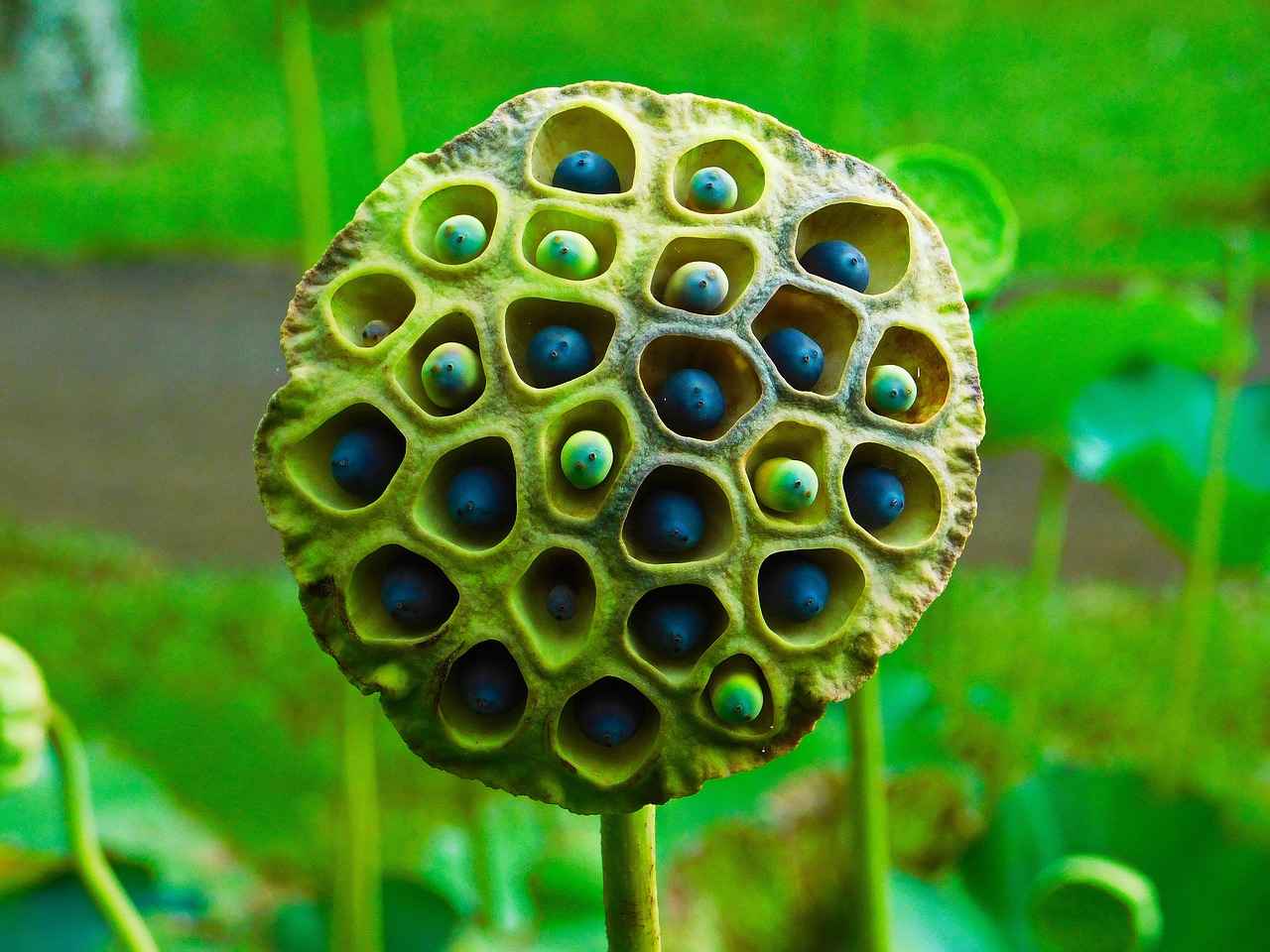
How Many Calories Are in Chia Seeds?
When it comes to healthy eating, understanding the caloric content of the foods we consume is crucial. One such food that has gained popularity in recent years is chia seeds. These tiny seeds pack a powerful nutritional punch, making them a favorite among health enthusiasts. In this section, we will explore the calorie content of chia seeds in detail and discuss their role in a balanced diet.
A standard serving of chia seeds, which is approximately 28 grams or 1 ounce, contains around 138 calories. This calorie count is relatively low, especially considering the numerous health benefits these seeds provide. Understanding this calorie content is essential for managing your dietary intake, particularly if you are aiming for weight loss or maintenance.
Chia seeds are not only low in calories, but they are also rich in essential nutrients that contribute to overall health. For those who are calorie-conscious, it’s important to note that the caloric density of chia seeds is complemented by their high fiber and protein content, which can help you feel fuller for longer periods.
- High Nutritional Value: Chia seeds are loaded with nutrients such as omega-3 fatty acids, fiber, and various essential minerals.
- Versatile Ingredient: They can be easily incorporated into a variety of dishes, from smoothies to baked goods.
- Health Benefits: Regular consumption of chia seeds can support digestive health, heart health, and weight management.
When comparing chia seeds to other seeds like flaxseeds or pumpkin seeds, it’s essential to look at the caloric content as well as the nutritional benefits. For instance, while flaxseeds also provide omega-3 fatty acids, they contain slightly more calories per ounce. This makes chia seeds a more appealing option for those looking to reduce calorie intake while still obtaining essential nutrients.
Due to their high fiber content, chia seeds can significantly aid in weight management. The fiber absorbs water and expands in the stomach, promoting a feeling of fullness and reducing overall calorie consumption. This characteristic makes chia seeds an excellent addition to meals or snacks, particularly for those who are trying to lose weight.
Incorporating chia seeds into your diet is simple and can be both delicious and nutritious. Here are a few ideas:
- Chia Seed Pudding: Combine chia seeds with your choice of milk or a milk alternative, let it sit overnight, and you’ll have a creamy pudding ready for breakfast.
- Smoothies: Add a tablespoon of chia seeds to your smoothies for an extra boost of nutrients without significantly increasing the calorie count.
- Baking: Incorporate chia seeds into your baking recipes, such as muffins or bread, to enhance their nutritional profile.
In summary, understanding the calorie content of chia seeds is vital for anyone looking to maintain a healthy diet. With only 138 calories per ounce, they offer a wealth of nutrients that can support overall health and well-being. Whether you’re looking to manage your weight or simply add more nutrition to your meals, chia seeds are a versatile and beneficial choice.

What Nutrients Do Chia Seeds Provide?
Chia seeds, often hailed as a superfood, are not only versatile but also packed with a variety of essential nutrients that contribute to overall health. In this section, we will delve deeper into the nutritional profile of chia seeds, exploring their benefits and how they can enhance your diet.
Chia seeds are a powerhouse of nutrition, making them a valuable addition to any diet. Here’s a closer look at their key nutrients:
- Protein: Chia seeds contain about 4 grams of protein per ounce, which is significant for a plant-based source. This makes them an excellent option for vegetarians and vegans looking to increase their protein intake.
- Dietary Fiber: With approximately 11 grams of fiber per ounce, chia seeds are an outstanding source of dietary fiber. This high fiber content aids in digestion, helps regulate blood sugar levels, and promotes a feeling of fullness, which can assist in weight management.
- Healthy Fats: Chia seeds are rich in omega-3 fatty acids, particularly alpha-linolenic acid (ALA). These healthy fats are essential for heart health, helping to reduce inflammation and lower cholesterol levels.
- Vitamins and Minerals: Chia seeds are a good source of several important minerals, including calcium, magnesium, and phosphorus. They also contain essential vitamins such as B vitamins, which play a crucial role in energy metabolism.
The unique combination of nutrients found in chia seeds provides numerous health benefits:
- Promotes Digestive Health: The high fiber content in chia seeds helps to promote regular bowel movements and supports gut health by acting as a prebiotic, feeding beneficial gut bacteria.
- Aids in Weight Management: The ability of chia seeds to absorb water and expand in the stomach may help control appetite and reduce overall calorie intake, making them a great addition to weight loss diets.
- Supports Heart Health: The omega-3 fatty acids in chia seeds are known to reduce the risk of heart disease by lowering blood pressure, reducing triglycerides, and improving cholesterol levels.
- Boosts Bone Health: With their high calcium and phosphorus content, chia seeds can contribute to improved bone density and overall skeletal health, particularly for those who may not consume dairy products.
Adding chia seeds to your diet is simple and can enhance the nutritional value of your meals:
- Chia Seed Pudding: Combine chia seeds with milk or a plant-based alternative and let them soak overnight. This creates a delicious pudding that can be topped with fruits and nuts.
- In Smoothies: Toss a tablespoon of chia seeds into your morning smoothie for an extra boost of nutrients without altering the flavor.
- Baking: Incorporate chia seeds into baked goods such as muffins or bread for added texture and nutrition.
In conclusion, chia seeds are a remarkable source of essential nutrients that can significantly benefit your health. Their high protein, fiber, and omega-3 fatty acid content make them a valuable addition to any diet. By understanding the nutritional profile of chia seeds and how to incorporate them into your meals, you can enjoy their numerous health benefits while enhancing your overall dietary intake.
High Fiber Content
Chia seeds are often celebrated for their remarkable fiber content, boasting about 11 grams of fiber per ounce. This impressive amount makes them one of the best sources of dietary fiber available. Fiber is an essential component of a healthy diet, playing a vital role in digestive health and overall well-being.
One of the primary benefits of consuming fiber-rich foods like chia seeds is their ability to promote healthy digestion. Fiber aids in the movement of food through the digestive tract, preventing constipation and ensuring regular bowel movements. By incorporating chia seeds into your meals, you can help maintain a healthy gut, which is crucial for nutrient absorption and overall health.
Moreover, the high fiber content in chia seeds contributes to a feeling of fullness. When consumed, chia seeds absorb liquid and expand in the stomach, creating a gel-like substance that can help curb hunger. This can be particularly beneficial for individuals looking to manage their weight or reduce snacking between meals. By adding chia seeds to your diet, you can enjoy a satisfying and nutritious way to control appetite.
In addition to aiding digestion and promoting fullness, fiber is linked to various health benefits. Research has shown that a high-fiber diet can lower the risk of chronic diseases such as heart disease, diabetes, and certain types of cancer. The soluble fiber found in chia seeds can also help regulate blood sugar levels, making them a smart choice for individuals managing diabetes or insulin sensitivity.
Incorporating chia seeds into your diet is simple and versatile. They can be added to smoothies, sprinkled on salads, or used as a thickening agent in recipes like puddings and jams. For those looking to enhance their fiber intake, chia seeds are an excellent addition to a variety of dishes.
It’s important to remember that while chia seeds are a fantastic source of fiber, moderation is key. Consuming excessive amounts can lead to digestive discomfort, particularly for those who are not used to a high-fiber diet. It’s advisable to gradually increase your fiber intake and ensure adequate hydration to support digestive health.
In summary, the high fiber content of chia seeds makes them a valuable addition to any healthy diet. Not only do they support digestive health and promote a feeling of fullness, but they also offer numerous long-term health benefits. By incorporating chia seeds into your meals, you can take a significant step towards improving your overall health and well-being.
Rich in Omega-3 Fatty Acids
Chia seeds have gained immense popularity in recent years, not only for their unique texture but also for their remarkable nutritional profile. One of the standout features of these tiny seeds is their exceptional content of omega-3 fatty acids. In particular, they are one of the richest plant-based sources of alpha-linolenic acid (ALA), an essential fatty acid that offers numerous health benefits.
Omega-3 fatty acids play a crucial role in maintaining overall health. They are known for their ability to support heart health by helping to lower blood pressure and cholesterol levels. Additionally, omega-3s are essential for brain health, as they contribute to cognitive function and may even help in reducing the risk of neurodegenerative diseases.
While fish is often touted as the primary source of omega-3 fatty acids, chia seeds provide a fantastic alternative for those following a vegetarian or vegan diet. Unlike fish, chia seeds are free from contaminants and provide a plant-based source of ALA. A single ounce of chia seeds contains approximately 5,000 mg of ALA, making them an excellent choice for anyone looking to boost their omega-3 intake.
- Heart Health: Regular consumption of chia seeds can help reduce inflammation, lower triglycerides, and improve overall cardiovascular health.
- Anti-Inflammatory Properties: Omega-3 fatty acids are known for their anti-inflammatory effects, which can alleviate symptoms of arthritis and other inflammatory conditions.
- Improved Mood and Mental Health: Some studies suggest that omega-3s may help reduce symptoms of depression and anxiety, contributing to better mental health.
Incorporating chia seeds into your diet is simple and versatile. Here are a few practical tips:
- Soak Them: Soaking chia seeds in water or milk allows them to expand and form a gel-like consistency, making them perfect for puddings or smoothies.
- Sprinkle on Salads: Adding chia seeds to salads not only enhances the texture but also boosts the nutritional value of your meal.
- Use in Baking: Chia seeds can be used as an egg substitute in baking by mixing them with water, making them a great option for vegan recipes.
While omega-3 fatty acids are generally safe for most people, it’s essential to be cautious about the quantity consumed. Excessive intake of chia seeds can lead to digestive discomfort due to their high fiber content. It is advisable to start with small amounts and gradually increase your intake to allow your body to adjust.
In conclusion, chia seeds are not only a delicious addition to various dishes but also a powerhouse of nutrients, particularly omega-3 fatty acids. Their rich ALA content offers numerous health benefits, making them an excellent choice for enhancing heart health, reducing inflammation, and improving overall well-being. By incorporating chia seeds into your daily diet, you can enjoy their numerous advantages while maintaining a balanced and healthy lifestyle.
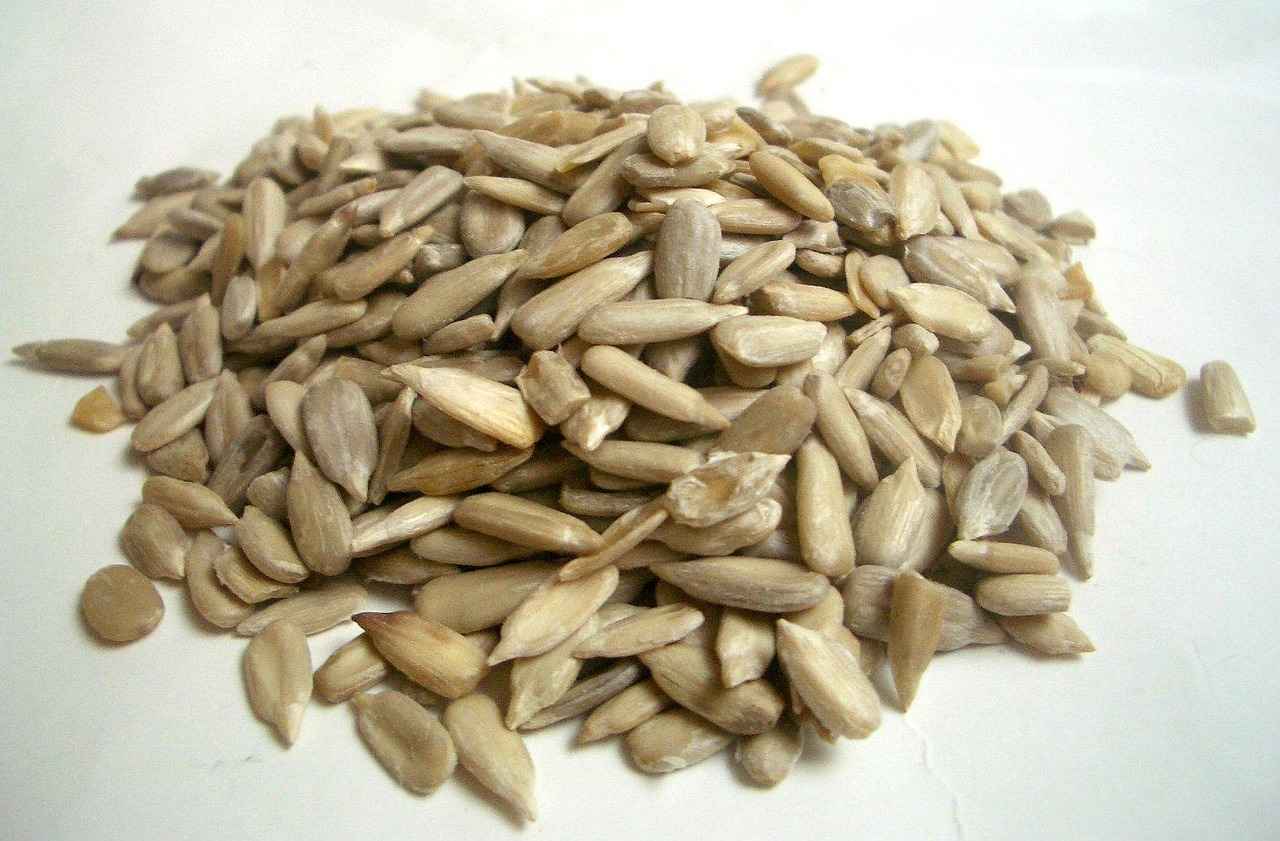
How Can You Incorporate Chia Seeds into Your Diet?
Incorporating chia seeds into your diet can be both simple and enjoyable. These tiny seeds are not only versatile but also packed with nutrients that can enhance your meals. Here are some practical tips and creative recipes to help you seamlessly add chia seeds to your daily routine.
Chia seeds offer numerous health benefits, including high fiber content, omega-3 fatty acids, and essential minerals. They can help with digestion, promote heart health, and support weight management. But how can you easily incorporate them into your meals?
- Chia Seed Pudding: A popular choice for breakfast or a snack. To make it, combine 1/4 cup of chia seeds with 1 cup of milk or a dairy alternative. Sweeten with honey or maple syrup, and let it sit in the fridge overnight. In the morning, top it with your favorite fruits and nuts.
- Mix into Smoothies: Add a tablespoon of chia seeds to your smoothie for an extra boost of nutrients. They blend well with fruits and vegetables, providing a unique texture without altering the flavor.
- Baking with Chia Seeds: Substitute a portion of flour in your baking recipes with chia seeds. They work well in muffins, bread, and pancakes, adding a healthy twist to your baked goods.
- Chia Seed Jam: Create a quick and healthy jam by combining mashed fruits with chia seeds and a sweetener of your choice. Let it sit for about 15 minutes until it thickens, and enjoy it on toast or yogurt.
- Thicken Soups and Sauces: Add chia seeds to soups or sauces as a natural thickener. They absorb liquid and create a satisfying consistency while boosting the nutritional value.
- Salad Toppings: Sprinkle chia seeds on top of salads for added crunch and nutrients. They pair well with a variety of dressings and ingredients.
- Energy Bars: Make your own energy bars by mixing oats, nuts, honey, and chia seeds. Press the mixture into a pan, let it set, and cut it into bars for a convenient snack.
While chia seeds are generally safe for most people, it is important to consume them in moderation. Due to their high fiber content, excessive intake can lead to digestive discomfort. Always start with a small amount and increase gradually to allow your body to adjust.
In conclusion, chia seeds can be a delightful addition to your diet, enhancing both the nutritional value and taste of your meals. With these simple tips and recipes, you can easily incorporate them into your daily routine and enjoy their numerous health benefits.
Chia Seed Pudding
has gained immense popularity as a nutritious breakfast option, beloved for its versatility and health benefits. This delightful dish is not only easy to prepare but also offers a creamy texture that satisfies the palate. By combining chia seeds with milk or a milk alternative, you can create a delicious and filling meal that is perfect for any time of the day.
Chia seeds are incredibly nutrient-dense, packed with essential vitamins and minerals. When you prepare chia seed pudding, you are not just enjoying a tasty treat; you are also fueling your body with valuable nutrients. A typical serving of chia seeds contains:
- Fiber: About 11 grams per ounce, promoting digestive health.
- Omega-3 Fatty Acids: Beneficial for heart health and reducing inflammation.
- Protein: Essential for muscle repair and growth.
- Calcium: Important for bone health.
Creating is simple and requires minimal ingredients. Here’s a basic recipe to get you started:
Ingredients:- 1/4 cup chia seeds- 1 cup milk or a milk alternative (almond, coconut, etc.)- 1-2 tablespoons sweetener (honey, maple syrup, or agave)- Optional toppings: fruits, nuts, or granolaInstructions:1. In a bowl, combine chia seeds, milk, and sweetener.2. Stir well to prevent clumping.3. Cover and refrigerate for at least 4 hours or overnight.4. Serve with your favorite toppings.
Chia seed pudding is an excellent breakfast choice for several reasons:
- Quick and Easy: Preparation takes only a few minutes, making it perfect for busy mornings.
- Customizable: You can easily modify the flavors and toppings according to your preferences.
- Healthy and Filling: The combination of fiber and protein keeps you full and satisfied until your next meal.
Absolutely! One of the best aspects of chia seed pudding is its adaptability. Here are some ideas for enhancing your pudding:
- Fruits: Add berries, bananas, or mango for natural sweetness and added vitamins.
- Spices: Incorporate cinnamon or vanilla for an extra flavor boost.
- Nuts and Seeds: Top with almonds, walnuts, or pumpkin seeds for added crunch and healthy fats.
Beyond being a tasty breakfast option, chia seed pudding offers numerous health benefits:
- Improved Digestion: The high fiber content promotes regular bowel movements.
- Heart Health: Omega-3 fatty acids contribute to cardiovascular health.
- Weight Management: The filling nature of chia seeds helps control appetite.
In summary, is not just a trendy food; it is a nutritious and versatile dish that can easily fit into a healthy diet. With its simple preparation and myriad of health benefits, it is a perfect addition to your breakfast routine.
Adding to Smoothies
Incorporating chia seeds into your smoothies is a simple yet effective way to boost their nutritional profile. These tiny seeds, packed with essential nutrients, can transform an ordinary smoothie into a superfood drink without adding significant calories. But how exactly do chia seeds enhance your smoothies?
Chia seeds are known for their impressive nutritional benefits. When added to smoothies, they not only provide a unique texture but also contribute a wealth of nutrients, making your drink more satisfying and beneficial for your health. Here are some reasons to consider:
- Low-Calorie Nutrient Boost: A standard serving of chia seeds, about 28 grams, contains roughly 138 calories. This means you can enrich your smoothie without overwhelming your calorie count.
- Texture and Thickness: When soaked in liquid, chia seeds expand and create a gel-like consistency, giving your smoothies a creamy texture that can enhance the overall experience.
- Rich in Omega-3 Fatty Acids: Chia seeds are one of the richest plant sources of omega-3 fatty acids, which are essential for heart health and reducing inflammation.
- High Fiber Content: With about 11 grams of fiber per ounce, chia seeds promote digestion and help you feel full longer, making them an excellent addition for those watching their weight.
Incorporating chia seeds into your smoothies is straightforward. Here are some practical tips:
- Pre-soak the Seeds: For the best texture, soak chia seeds in water or your choice of milk for about 10-15 minutes before adding them to your smoothie. This allows them to absorb liquid and expand, creating a thicker consistency.
- Blend with Other Ingredients: Add chia seeds along with your fruits, vegetables, and liquids. They blend well with almost any flavor, making them versatile for various smoothie recipes.
- Experiment with Flavors: Chia seeds have a mild, nutty flavor that pairs well with a variety of ingredients. Try them in tropical smoothies with mango and pineapple, or in green smoothies with spinach and banana.
Here are a couple of delicious smoothie recipes that highlight the benefits of chia seeds:
| Recipe | Ingredients | Instructions |
|---|---|---|
| Tropical Chia Smoothie | 1 banana, 1 cup pineapple, 1 cup coconut milk, 2 tbsp chia seeds | Blend all ingredients until smooth. Let sit for 5 minutes to allow chia seeds to expand, then enjoy! |
| Green Chia Smoothie | 1 cup spinach, 1/2 avocado, 1 cup almond milk, 2 tbsp chia seeds | Blend all ingredients until creamy. Serve immediately for a refreshing, nutrient-packed drink. |
While chia seeds are generally safe for most people, there are a few considerations to keep in mind:
- Moderation is Key: Due to their high fiber content, consuming too many chia seeds can lead to digestive discomfort. Start with a small amount and gradually increase.
- Hydration: Chia seeds absorb liquid, so it’s essential to drink plenty of water when consuming them to avoid any potential digestive issues.
In summary, adding chia seeds to your smoothies is a fantastic way to enhance their nutritional value while keeping calories in check. With their unique texture and numerous health benefits, chia seeds can easily become a staple in your smoothie-making routine.

Are There Any Health Benefits of Chia Seeds?
Chia seeds have gained immense popularity in recent years, not just for their unique texture but also for their numerous health benefits. While many people focus on their calorie count, it is essential to recognize that these tiny seeds are packed with nutrients that can significantly enhance overall wellness. This section explores the various health benefits of chia seeds, highlighting their positive effects on digestion, heart health, and weight management.
Chia seeds are a powerhouse of dietary fiber, containing approximately 11 grams of fiber per ounce. This high fiber content plays a crucial role in promoting healthy digestion. When consumed, chia seeds absorb water and expand, forming a gel-like substance that aids in regulating bowel movements and preventing constipation. Additionally, fiber is known to support the growth of beneficial gut bacteria, contributing to a healthier digestive system.
One of the standout features of chia seeds is their rich content of omega-3 fatty acids, particularly alpha-linolenic acid (ALA). These healthy fats are essential for maintaining heart health. Studies have shown that omega-3 fatty acids can help lower bad cholesterol levels and reduce inflammation in the body, both of which are critical for a healthy cardiovascular system. Incorporating chia seeds into your diet may contribute to a lower risk of heart disease and improved overall heart function.
For those looking to manage their weight, chia seeds can be a valuable ally. Their high fiber content not only promotes feelings of fullness but also helps regulate appetite. When chia seeds are consumed, they absorb liquid and expand in the stomach, leading to increased satiety and reduced cravings. This can be particularly beneficial for individuals trying to control their calorie intake while still feeling satisfied. Including chia seeds in meals can make it easier to stick to a healthy eating plan.
- Bone Health: Chia seeds are an excellent source of calcium, magnesium, and phosphorus, which are essential for maintaining strong bones and teeth.
- Antioxidant Properties: These seeds are rich in antioxidants, which help combat oxidative stress and may reduce the risk of chronic diseases.
- Blood Sugar Control: The fiber and healthy fats in chia seeds can help stabilize blood sugar levels, making them a smart choice for individuals with diabetes.
Adding chia seeds to your diet is simple and versatile. They can be sprinkled on salads, blended into smoothies, or used as a thickening agent in recipes. One popular way to enjoy chia seeds is by making chia pudding. By mixing chia seeds with your choice of milk or milk alternatives and letting them soak overnight, you can create a delicious and nutritious breakfast or snack option.
In summary, chia seeds are more than just a trendy superfood. Their numerous health benefits, including improved digestion, heart health, and effective weight management, make them a worthy addition to any diet. By understanding how to incorporate chia seeds into your meals, you can enjoy their positive effects on overall wellness.
Weight Management
When it comes to maintaining a healthy weight, dietary choices play a crucial role. Among the myriad of options available, chia seeds have emerged as a popular superfood, particularly for their effectiveness in weight management. This tiny seed, packed with nutrients, has gained attention for its ability to aid in appetite regulation.
The secret behind chia seeds’ effectiveness lies in their high fiber content. A single ounce of chia seeds contains approximately 11 grams of fiber, which is about 40% of the recommended daily intake for adults. Fiber is known for its ability to promote a feeling of fullness, which can help reduce overall calorie intake.
Fiber, particularly soluble fiber, absorbs water and expands in the stomach, leading to a greater sensation of fullness. This can help curb cravings and prevent overeating. Furthermore, fiber slows down the digestion process, which means that nutrients are released gradually into the bloodstream, providing sustained energy and reducing hunger pangs.
- Chia Seed Water: Mixing chia seeds in water and letting them soak can create a gel-like substance that can be consumed before meals to promote satiety.
- In Smoothies: Adding chia seeds to your smoothies can enhance their nutritional value while keeping you full longer.
- In Salads: Sprinkling chia seeds on salads can add a crunchy texture and boost fiber intake.
In addition to helping with weight management, chia seeds offer various health benefits. They are rich in omega-3 fatty acids, which are known for their anti-inflammatory properties and benefits for heart health. Regular consumption can contribute to reduced cholesterol levels, promoting a healthier cardiovascular system.
While chia seeds can be an excellent addition to your diet, moderation is key. Overconsumption can lead to digestive discomfort due to their high fiber content. It’s advisable to gradually introduce them into your diet and drink plenty of water to aid digestion.
In conclusion, incorporating chia seeds into your diet can be a simple yet effective strategy for managing weight. Their high fiber content helps regulate appetite, making it easier to control calorie intake. By understanding how to use chia seeds effectively, you can enjoy their numerous health benefits while working towards your weight management goals.
Heart Health
Maintaining a healthy heart is essential for overall well-being, and incorporating chia seeds into your diet can be a simple yet effective way to support cardiovascular health. These tiny seeds are not only versatile in their culinary uses but also packed with nutrients that can significantly benefit heart health.
Omega-3 fatty acids are a type of polyunsaturated fat that is crucial for maintaining a healthy heart. They are known to help lower cholesterol levels, reduce blood pressure, and decrease inflammation throughout the body. Chia seeds are one of the richest plant sources of omega-3 fatty acids, particularly alpha-linolenic acid (ALA). Including these seeds in your diet can contribute to a healthier cardiovascular system.
Research has shown that omega-3 fatty acids can help lower levels of low-density lipoprotein (LDL) cholesterol, often referred to as “bad cholesterol.” By replacing saturated fats with healthier fats, such as those found in chia seeds, individuals can experience a reduction in LDL levels. This shift can lead to a decreased risk of heart disease and stroke.
Chronic inflammation is a significant risk factor for heart disease. The omega-3 fatty acids in chia seeds possess anti-inflammatory properties that can help mitigate this risk. Regular consumption of chia seeds can lead to a decrease in inflammatory markers in the body, promoting overall heart health.
- Chia Seed Smoothies: Add a tablespoon of chia seeds to your morning smoothie for a nutrient boost.
- Chia Seed Pudding: Soak chia seeds in almond milk overnight for a delicious and heart-healthy breakfast.
- Baking: Incorporate chia seeds into your baking recipes, such as muffins or bread, to enhance their nutritional value.
In addition to their heart health benefits, chia seeds are rich in fiber, protein, and essential minerals like calcium and magnesium. The high fiber content aids in digestion and can help in weight management, which is another important factor in maintaining heart health.
While chia seeds are generally safe for most people, it’s important to consume them in moderation. Excessive intake can lead to digestive issues due to their high fiber content. Additionally, individuals with allergies to seeds should exercise caution when adding chia seeds to their diet.
In conclusion, the omega-3 fatty acids found in chia seeds play a vital role in promoting heart health by lowering cholesterol levels and reducing inflammation. By incorporating chia seeds into your daily meals, you can enjoy their numerous health benefits while supporting your cardiovascular system.
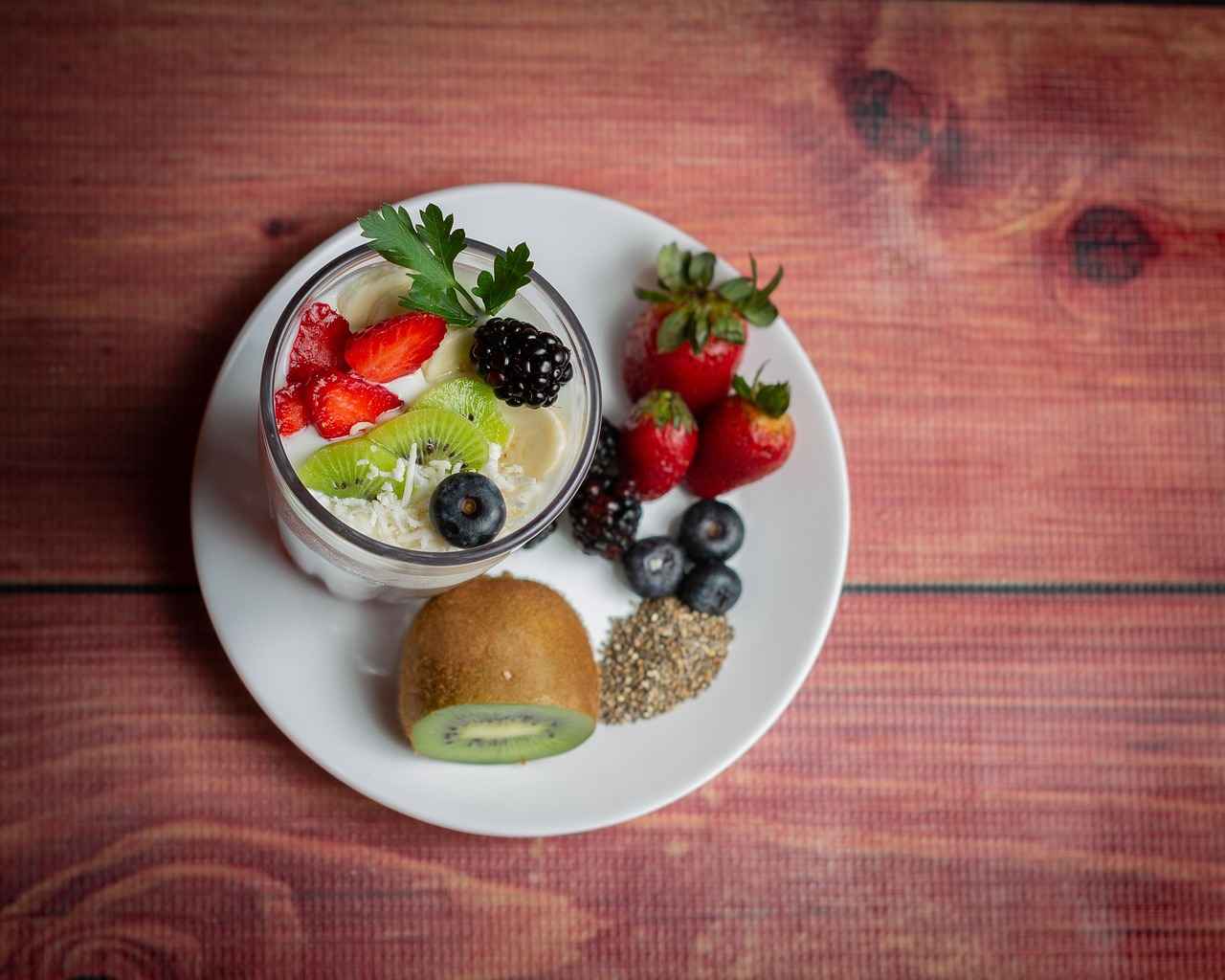
Potential Downsides of Chia Seeds
Chia seeds are often celebrated for their numerous health benefits, but it is crucial to recognize that they may not be suitable for everyone. Understanding the potential downsides of chia seeds can help individuals make informed dietary choices.
While chia seeds are generally safe for most people, there are some concerns that should be taken into account. This section will delve into the potential issues associated with chia seed consumption, including allergies and digestive problems.
Some individuals may experience allergic reactions to chia seeds. Although rare, these reactions can manifest as skin rashes, gastrointestinal distress, or even more severe symptoms. If you suspect an allergy, it is advisable to consult a healthcare professional for appropriate testing and guidance.
Due to their high fiber content, consuming excessive amounts of chia seeds may lead to digestive discomfort. While fiber is beneficial for digestive health, too much can result in bloating, gas, or constipation. It is essential to introduce chia seeds gradually into your diet, allowing your digestive system to adjust.
Moderation is key when it comes to chia seed consumption. A standard serving size is about 1 ounce (28 grams), which is roughly 2 tablespoons. Sticking to this amount can help you enjoy the benefits of chia seeds without experiencing negative side effects. Always remember to drink plenty of water when consuming chia seeds, as they absorb liquid and expand in the stomach.
Chia seeds may also interact with certain medications, particularly those that affect blood pressure or blood sugar levels. The omega-3 fatty acids found in chia seeds can have a blood-thinning effect, which could amplify the effects of anticoagulant medications. If you are on medication, consult your doctor before incorporating chia seeds into your diet.
Another concern is the potential for chia seeds to contain contaminants, such as pesticides or heavy metals, depending on their source. It is advisable to purchase organic chia seeds from reputable suppliers to minimize this risk. Always check for certifications and read reviews to ensure you are getting a high-quality product.
If you experience any adverse effects after consuming chia seeds, such as severe abdominal pain or allergic symptoms, it is crucial to seek medical advice promptly. Keeping a food diary can help identify whether chia seeds are the cause of any discomfort.
In summary, while chia seeds offer a wealth of health benefits, it is essential to be aware of the potential downsides. By understanding these issues, you can make informed decisions about incorporating chia seeds into your diet safely and effectively.
Allergic Reactions
Chia seeds have gained immense popularity as a superfood due to their numerous health benefits. However, it is crucial to recognize that some individuals may experience to these tiny, nutrient-dense seeds. Understanding the potential for allergies and knowing how to respond is vital for those who wish to incorporate chia seeds into their diet.
Chia seed allergies, though relatively rare, can manifest in various ways. Allergic reactions occur when the immune system mistakenly identifies a harmless substance as a threat. In the case of chia seeds, the proteins present can trigger an immune response in sensitive individuals.
Recognizing the symptoms of an allergic reaction is essential for timely intervention. Common symptoms may include:
- Skin Reactions: Hives, rashes, or eczema may develop after consuming chia seeds.
- Gastrointestinal Issues: Symptoms such as nausea, vomiting, or diarrhea can occur.
- Respiratory Problems: Allergic reactions may lead to difficulty breathing, wheezing, or nasal congestion.
- Anaphylaxis: In severe cases, individuals may experience anaphylaxis, a life-threatening reaction requiring immediate medical attention.
Individuals with a history of allergies to other seeds, such as flaxseed or sesame, may be at a higher risk for developing an allergy to chia seeds. Additionally, those with a predisposition to food allergies should exercise caution when trying chia seeds for the first time.
If you suspect that you are having an allergic reaction to chia seeds, it is crucial to take the following steps:
- Stop Consumption: Immediately discontinue eating chia seeds.
- Consult a Healthcare Professional: Seek medical advice to discuss your symptoms and determine the best course of action.
- Keep an Allergy Diary: Document any reactions you experience after consuming chia seeds or other new foods to help identify potential allergens.
If you have no known allergies, chia seeds can be a healthy addition to your diet. To minimize the risk of an allergic reaction:
- Start Slowly: Introduce chia seeds gradually into your diet to monitor for any adverse reactions.
- Consult with a Healthcare Provider: If you have concerns about allergies, discuss them with a healthcare professional before adding chia seeds to your meals.
- Be Aware of Cross-Contamination: If you have severe allergies, ensure that chia seeds are sourced from a reputable supplier to avoid cross-contamination with other allergens.
In conclusion, while chia seeds offer numerous health benefits, it is essential to be aware of the potential for allergic reactions. Understanding the symptoms, knowing who is at risk, and taking appropriate precautions can help ensure a safe and enjoyable experience with this superfood. Always consult a healthcare professional if you have concerns regarding allergies or dietary changes.
Digestive Issues
Chia seeds have gained immense popularity in recent years due to their numerous health benefits, but it is important to understand their potential downsides, especially concerning digestive issues. What are the digestive concerns associated with chia seeds? This section will explore the implications of their high fiber content and offer guidance on how to enjoy chia seeds without experiencing discomfort.
Chia seeds are tiny, nutrient-dense seeds that are packed with fiber, omega-3 fatty acids, and various essential minerals. While their high fiber content (approximately 11 grams per ounce) is beneficial for digestive health, it can also lead to discomfort if consumed in excess. Fiber plays a crucial role in promoting regular bowel movements and preventing constipation; however, too much fiber can overwhelm the digestive system, leading to bloating, gas, and cramping.
Moderation is key when incorporating chia seeds into your diet. A standard serving size is about 28 grams (1 ounce), which is sufficient to reap the health benefits without overwhelming your digestive system. How can you determine the right amount for you? Start with a smaller portion, such as 1 tablespoon (approximately 15 grams), and gradually increase your intake to assess your body’s response.
- Bloating: A common symptom when consuming too much fiber too quickly.
- Gas: Excessive fiber can lead to fermentation in the gut, causing gas production.
- Cramps: Stomach cramps may occur if your digestive system struggles to process large amounts of fiber.
- Diarrhea: High fiber intake can speed up digestion, leading to loose stools.
1. Start Slowly: Introduce chia seeds gradually into your diet.2. Stay Hydrated: Drink plenty of water to help fiber move through your digestive system.3. Soak Before Eating: Soaking chia seeds in water or milk allows them to expand, making them easier to digest.4. Combine with Other Foods: Mix chia seeds with yogurt, smoothies, or oatmeal to balance fiber intake.
If you experience persistent digestive issues after consuming chia seeds, it may be wise to consult a healthcare professional. Are there any underlying conditions that could exacerbate these symptoms? Conditions such as irritable bowel syndrome (IBS) or other gastrointestinal disorders may require tailored dietary advice. Additionally, if you have a history of food allergies, it’s essential to be cautious with new foods, including chia seeds.
While chia seeds are a powerhouse of nutrients, their high fiber content can lead to digestive discomfort if not consumed mindfully. By understanding your body’s needs and listening to its signals, you can enjoy the numerous benefits of chia seeds without the unpleasant side effects. Remember, moderation is key to a healthy and balanced diet.
Frequently Asked Questions
- What are the health benefits of chia seeds?
Chia seeds are packed with nutrients that support overall health. They are high in fiber, which aids digestion and helps you feel full longer. Additionally, their omega-3 fatty acids promote heart health by reducing inflammation and lowering cholesterol levels.
- How can I include chia seeds in my diet?
Incorporating chia seeds into your meals is simple! You can add them to smoothies for a nutritional boost, mix them into yogurt, or prepare a delicious chia seed pudding by soaking them in milk or a milk alternative overnight.
- Are there any side effects of consuming chia seeds?
While chia seeds are generally safe, some people may experience allergic reactions or digestive discomfort if consumed in excess. It’s best to start with a small amount and increase gradually to see how your body reacts.
- How many calories are in a serving of chia seeds?
A standard serving size of chia seeds is about 28 grams (or 1 ounce), which contains approximately 138 calories. This makes them a low-calorie option packed with nutrients!
- Can chia seeds help with weight management?
Yes! Thanks to their high fiber content, chia seeds can help regulate appetite and keep you feeling full, making them a great addition to a weight management plan.
